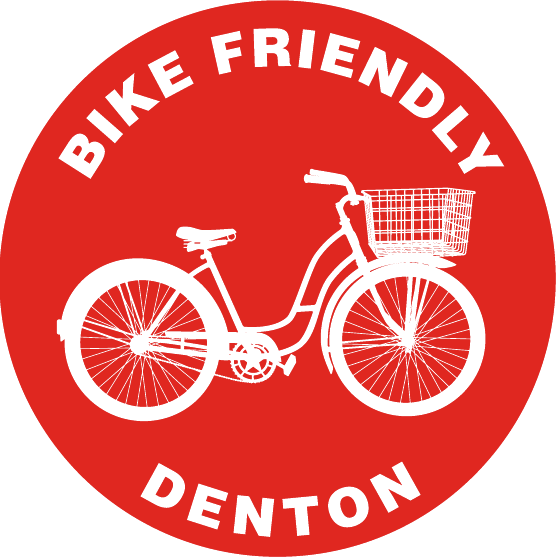Study: Denton Roads Seeing Above Average Crash Rates
October 1, 2022
Woman crosses N Locust Street near Congress.
Several Denton roads are seeing above-average crash rates compared to similar types of roads across Texas, according to a recent study presented to the Denton City Council on Tuesday.
Locust Street between Eagle and Sherman sees about 7.5 times more crashes than the state average for a similar type of road. Oak Street between Bonnie Brae and Locust Street sees about five times more crashes than state average.
The findings are part of a months-long citywide speed study to measure and analyze driving speeds and crash rates on certain roads in Denton.
Read full study: 2022 Citywide Speed Study
Staff performed the speed study after a 2019 request from then-councilmember Keely Briggs to revisit how Denton sets speed limits. The call came after the release of City Limits: Setting Safe Speed Limits on Urban Streets, a report by the National Association of Transportation Officials (NACTO) recommending a safer method of setting speed limits.
Most traffic engineers use the 85th percentile rule for setting speed limits. This rule effectively sets speed limits based on how fast drivers want to go, not what speed is safest for human life.
Travel speeds are a major factor that determines injury severity when a crash occurs. Just 5 mph can make the difference between some living or dying after a crash.
Image from Smart Growth America.
People traveling in cars also experience more injury and death in crashes at higher speeds, especially as the average weight of vehicles continues to grow each year.
The United States and Texas are grappling with a road safety crisis as U.S. traffic fatalities have increased by 7-10 percent each year since 2019. In 2021, Texas saw its second-deadliest year on Texas roads since TxDOT began keeping statistics in 1940. In 2021, 4,480 Texans were killed in traffic crashes, an average of 12 per day.
Speed Study Methodology
Denton’s city-wide speed study gathered three key pieces of data: observed travel speeds, traffic volumes and collision data on all roads included in the study.
Road Selection
The study focused on Denton’s busier roads like arterials and collectors. Freeways and residential streets were not included in the study. Arterial and collector roads that were under construction or about to be under construction were not studied since accurate travel speeds could not be collected. These roads may be studied at a future date.
Some collector roads like Hinkle, Malone and Old North were not included in the study because their speed limit is set at the state’s default urban speed limit of 30 mph. Including them in the study and measuring their actual driving speeds could result in the city being required to raise the speed limit on those roads.
Crash Data
Crash data for the roads included in the study was collected from TxDOT’s Crash Records Information System (C.R.I.S.) for 2019 through 2021.
Heat map of crash density with icons showing locations of fatal and serious (SSI) crashes 2019-2021. Light green lines are roads that were included in the city-wide speed study.
Denton’s Bicycle, Pedestrian & ADA Coordinator, Nathan George, noted that the number of crashes for each roadway was likely an undercount since around 15 percent of crash records for the city had no accurate location information and could not be included in the study.
Speed Recommendations
Based on observed driving speeds and recent crash data on the studied roads, staff presented City Council with a series of recommended speed limits for certain roads.
Many roads are recommended to keep their existing speed limit, some are recommended for lower speeds and a small number are recommended for a slight increase in the speed limit.
A full list of recommendations is available in the speed study report.
Denton’s most deadly roads are owned by TxDOT. City staff have shared their speed limit recommendations on certain state-owned roads to TxDOT and will meet with them over the next few months.
Speed limit recommendations for city-owned streets will be discussed further by the Denton City Council as they work to create an updated ordinance setting the speeds on these streets.
Residential Speed Limits
Texas state law requires a default 30 mph speed limit on non-rural residential roads. Cities may lower the speed limit to as low as 25 mph in neighborhoods, but state requirements make it challenging.
Cities wanting to lower neighborhood speed limits lower than 30 mph must perform a study and make a case to TxDOT for why a lower speed limit is needed. If approved for the lower speed limit, the city must install 25 mph speed limit signs every 1,000 feet on every affected road, which can cost millions of dollars.
Texas state lawmakers from Houston and Austin have tried four times to pass a Safe Neighborhood Streets bill in Texas that would make it easier for cities to set safer speed limits in neighborhoods, but the bill has never made it to a vote in either the Texas House or the Texas Senate. Groups like Vision Zero Texas continue to work with lawmakers to pass this type of legislation that enables safer streets.
The Denton City Council is expected to discuss the topic of residential streets in a future work session in October.
Recording of City Council Meeting
All Denton City Council meetings are recorded. Access recording of presentation and discussion about citywide speed study.




